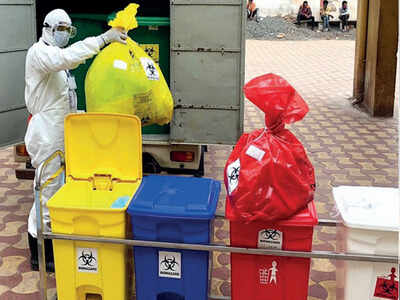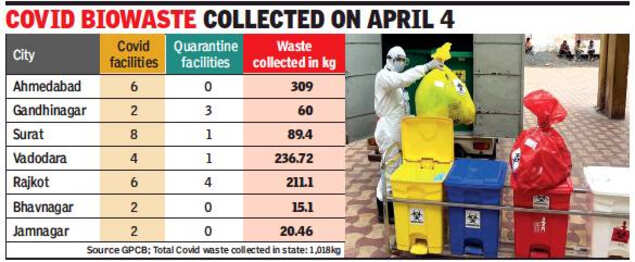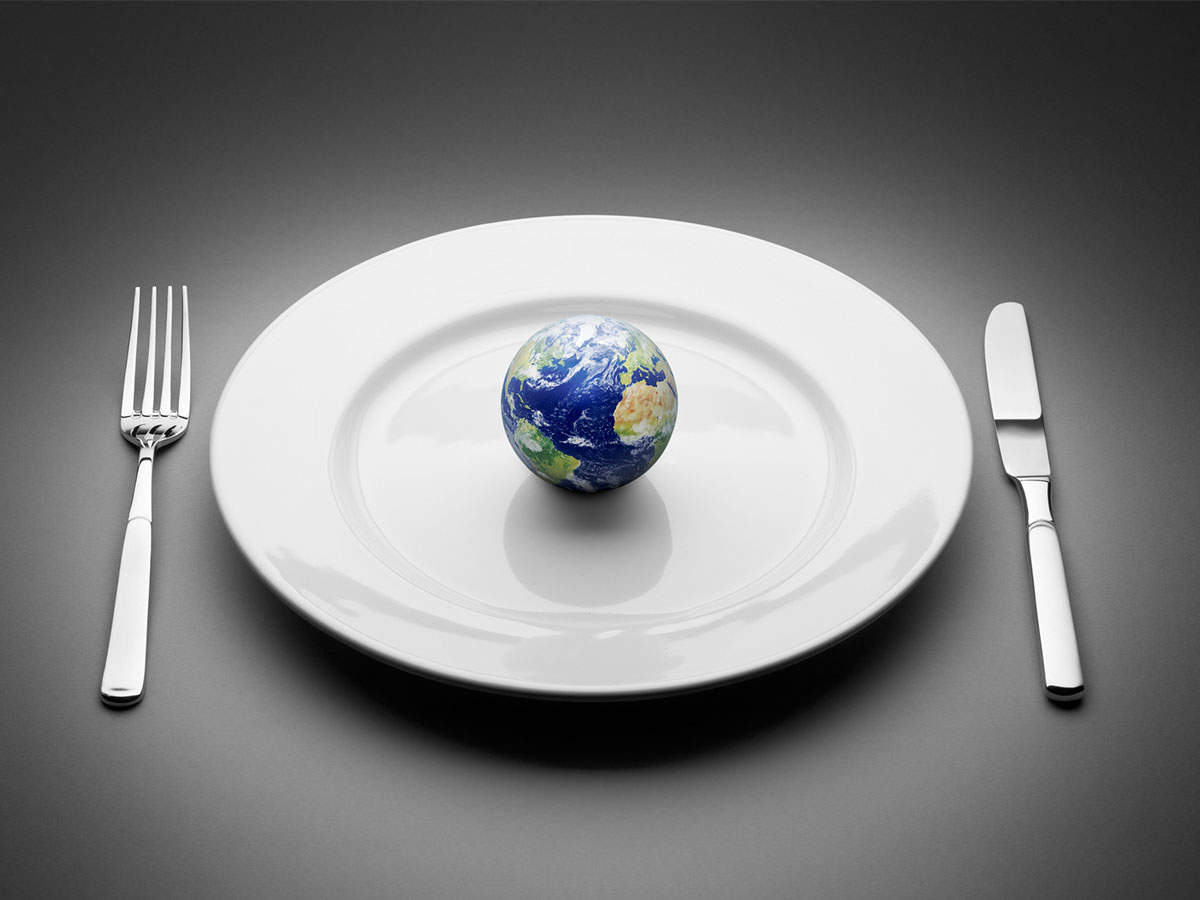
AHMEDABAD: They are the unsung heroes at the forefront of the Covid war. These 1,100 biowaste collectors employed at 25 incineration facilities across the state now handle the most dangerous biohazard known to humans. Each day, more than 1 tonne of Covid biomedical waste is destroyed in the state by the workers of these facilities.
These workers’ families plead with them to quit such a high-risk job. But fighting the stigma and placating their loved ones, the workers return to Covid isolation facilities to collect waste and take it to incineration plants to destroy it. And yet these workers are not considered on a par with other health workers for compensation or insurance announced by the state recently for the Covid war. More than 350 vehicles collect biowaste across the state with 25 to 30 vehicles operating in Ahmedabad’s four facilities alone, the highest in any city. Ahmedabad generates 500-600kg of waste every day.

“I have a small kid at home. Every day my wife and my mother implore me to quit the job,” says a worker at a facility in Ahmedabad who did not want to be identified. “But each day I feel determined to do my duty, which is important for my future and that of all children,” he says.
“Our workers have just five to seven minutes to incinerate biohazard bags once they disembark from our van at our incineration facility,” says national president of Association of Common Biomedical Waste Treatment Facilities (CBWTFs)Vinod Kachhadia. “Each day we collect 1,000-1,200kg of Covid waste,” he says. “The load is increasing by the day, but we are determined to carry on. The waste is very dangerous one has to be careful.”
He explains that biohazard vans have to be disinfected before the waste is loaded and unloaded. “We cannot compromise the sequence of waste handling or we will pay with our lives,” says an Ahmedabad incineration facility owner, Prakash Vaghela. “We have 5,000 sets of protective gear for our employees because of the intricate work involved in disposing of the waste,” Vaghela says
These workers’ families plead with them to quit such a high-risk job. But fighting the stigma and placating their loved ones, the workers return to Covid isolation facilities to collect waste and take it to incineration plants to destroy it. And yet these workers are not considered on a par with other health workers for compensation or insurance announced by the state recently for the Covid war. More than 350 vehicles collect biowaste across the state with 25 to 30 vehicles operating in Ahmedabad’s four facilities alone, the highest in any city. Ahmedabad generates 500-600kg of waste every day.

“I have a small kid at home. Every day my wife and my mother implore me to quit the job,” says a worker at a facility in Ahmedabad who did not want to be identified. “But each day I feel determined to do my duty, which is important for my future and that of all children,” he says.
TimesView
People concerned with waste management, in particular biohazardous material, should be considered on a par with government health workers for insurance benefits and compensation for their role in the war on Covid. Passes should be issued to workers of incineration facilities so that biomedical waste is disposed of efficiently. Staff associated with the maintenance of incineration facilities should also get passes. Biomedical waste collection should be considered an important element in the list of essential services.
“Our workers have just five to seven minutes to incinerate biohazard bags once they disembark from our van at our incineration facility,” says national president of Association of Common Biomedical Waste Treatment Facilities (CBWTFs)Vinod Kachhadia. “Each day we collect 1,000-1,200kg of Covid waste,” he says. “The load is increasing by the day, but we are determined to carry on. The waste is very dangerous one has to be careful.”
He explains that biohazard vans have to be disinfected before the waste is loaded and unloaded. “We cannot compromise the sequence of waste handling or we will pay with our lives,” says an Ahmedabad incineration facility owner, Prakash Vaghela. “We have 5,000 sets of protective gear for our employees because of the intricate work involved in disposing of the waste,” Vaghela says

Coronavirus outbreak
Trending Topics
LATEST VIDEOS
City
 Delhi Health Minister meets 82-year-old cured COVID-19 patient
Delhi Health Minister meets 82-year-old cured COVID-19 patient  Centre considering states' request to extend lockdown: Sources
Centre considering states' request to extend lockdown: Sources  COVID-19: Ranchi admin bans movement of persons, vehicles after 2 novel coronavirus cases reported
COVID-19: Ranchi admin bans movement of persons, vehicles after 2 novel coronavirus cases reported  COVID-19: Educational institutions will be closed till Apr 30 in state, says Meghalaya Deputy CM
COVID-19: Educational institutions will be closed till Apr 30 in state, says Meghalaya Deputy CM
More from TOI
Navbharat Times
Featured Today in Travel
Quick Links
Kerala Coronavirus Helpline NumberHaryana Coronavirus Helpline NumberUP Coronavirus Helpline NumberBareilly NewsBhopal NewsCoronavirus in DelhiCoronavirus in HyderabadCoronavirus in IndiaCoronavirus symptomsCoronavirusRajasthan Coronavirus Helpline NumberAditya ThackerayShiv SenaFire in MumbaiAP Coronavirus Helpline NumberArvind KejriwalJammu Kashmir Coronavirus Helpline NumberSrinagar encounter
Get the app





